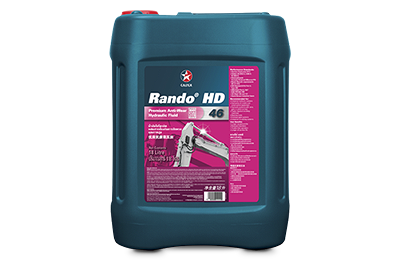
Avoid Hydraulic oil mistakes - buy premium
In construction equipment, the hydraulic system is paramount. These systems demand lubrication to function dependably, and, for that, they require efficient hydraulic fluids, ones with optimal viscosity and low power consumption properties. Not all hydraulic fluids are alike — the three main types are synthetic, petroleum, and water-based— and they all have their own special strengths and weaknesses.
As a thumb rule, there are trade-offs to recognize of hydraulic fluids, per their viscosities. High-viscosity (thicker) oils cause hydromechanical inefficiencies within the system, i.e. slower flow, with the boon of improved volumetric efficiency, i.e. the thicker oil doesn’t leak a lot. Low-viscosity (thinner) oils cause volumetric inefficiencies through leakage, but with the boon of improved hydromechanical efficiency.i
When buying cheaper, typical hydraulic oils, note that most will lose efficiency either due to loss of flow or volumetric leakage. Typical monograde oils have poorer control over their viscosity, as they are either unable to flow well in colder conditions or are depleted due to leakage in extremely hot conditions. Thus, in conditions that vary widely between very hot and very cold, problems arise.
This is where a premium, multigrade hydraulic oil comes in.
These oils have superior viscosity control over a larger temperature range, seamless fluidity at lower temperatures, decent volumetric efficiency a high temperatures, useful rust and oxidation inhibitors, and fluid cleanliness that meets OEM specifications. Field tests have shown that the use of a premium hydraulic oil contributed to improved efficiency gains as high as 7.5% and productivity as much as 10.4% compared to a conventional monograde fluid. Electrical energy savings were also measured and showed efficiency increases as high as 4.2%. This was proof that the choice of oil used for the hydraulic system has a considerable effect on the machine’s efficiency.
Another thing worth noting in this article about hydraulic performance is that particle contamination is the primary source of lubricant-related failures in machine equipment. A high particle count in the hydraulic oil can contribute to foaming, varnish, and the unwanted tendency to demulsify water in the oil, the latter which can cause fire-related mishaps.
There are ISO Codes for hydraulic oils based on their levels of contamination, and a heavily contaminated hydraulic oil of ISO Code (4406) 23/21/18 was tested to quantify the impact of it on the internal components of the hydraulic system—this level of contamination represented the condition of oil that is often used to fill and top-off oil reservoirs, thus, giving an idea of the negative practices of equipment users. Following the Eaton Vickers 35Q25 Pump Test protocol with this oil, inspections of internal parts in the first test sequence showed signs of wear on the side plates and vanes.
Naturally, due to the larger amount of coarse particles in the oil, accelerated wear was seen. Therefore, it became clear that hydraulic oil needs to meet OEM cleanliness specifications to help avoid damage to critical components throughout the hydraulic system, including servos, directional valves, hose, and pump parts.
The bottom line is that you need to pick the smarter option when it comes to hydraulic fluids, not the cheapest option. Using a multi-grade option with useful additives and base oil, especially with a lack of contaminant particles, is the way to go.
See our range of hydraulic oils.
i The Seven Most Common Hydraulic Equipment Mistakes www.machinerylubrication.com/Read/31529/right-hydraulic-fluid.

By James Gerig - 04 August 2020
About Author
Jason is currently the Americas ISOCLEAN Business Manager for Chevron Lubricants where he is implementing an industry leading business model for certified clean lubricants. He has 23 years of experience in the lubricants and fuel industry holding various positions in operations management, marketing, and sales with his primary passion focused on equipment reliability utilizing certified clean lubricants. He holds a B.S. degree in Business Marketing from the University of Wyoming and has been recognized by the Society of Tribologists and Lubricant Engineers as a Certified Lubricant Specialist and Oil Monitoring Analyst.

See Our Range
Modern hydraulic systems are designed to be more powerful and efficient. They’re also tougher to lubricate. Caltex answers the challenge with hydraulic oils that perform in the harshest conditions, to help you meet or even extend the expected life of your equipment.




